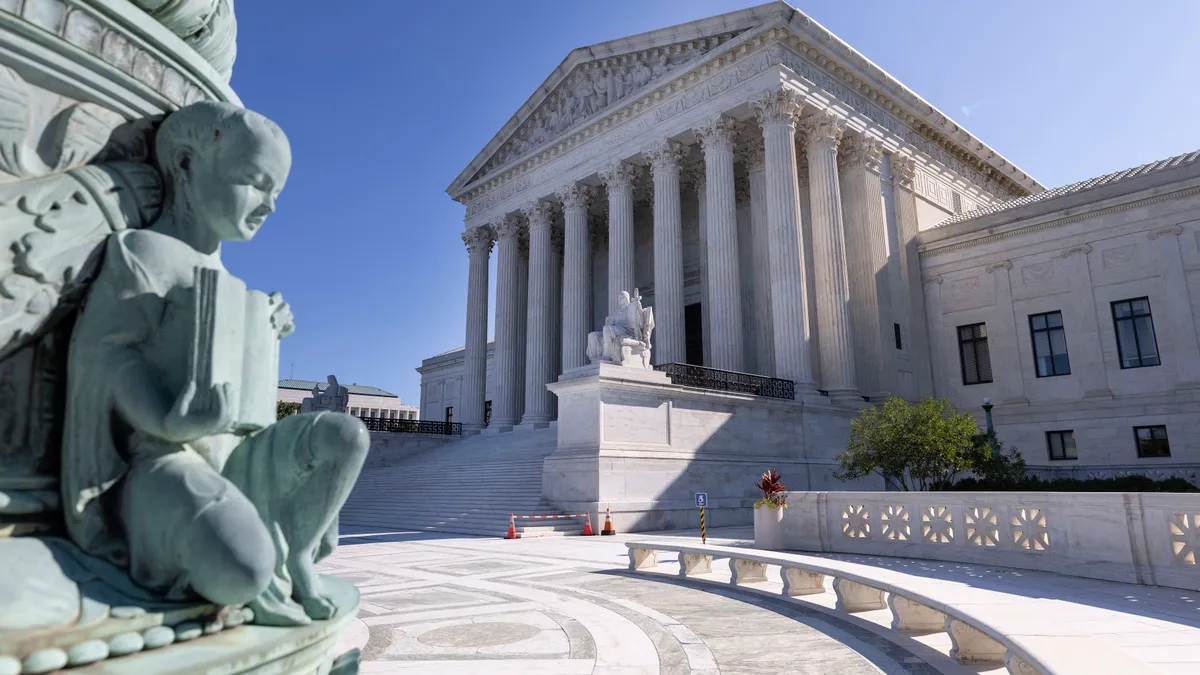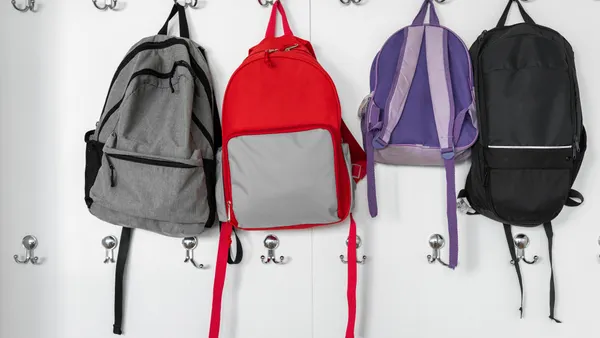Answers to the questions posed to the U.S. Supreme Court of whether a school district should be held liable for a sexual assault that it said it had no "actual knowledge" of will have to wait.
On Monday, the high court denied a petition from Virginia's Fairfax County School Board to hear a case regarding Title IX liability for student-on-student harassment.
In its Dec. 30, 2021, petition the school system asked the Supreme Court to consider two questions:
- Whether a funding recipient may be liable in damages in a private action when the recipient’s response itself did not cause any harassment actionable under Title IX.
- Whether the requirement of “actual knowledge” in a private action is met when a funding recipient lacks a subjective belief that any harassment actionable under Title IX occurred.
According to the petition, the case stems from a 2018 lawsuit against the district from a person referred to as Jane Doe in legal records. Doe's lawsuit said she was sexually assaulted during a school-sponsored high school band trip, and that the school system had violated her rights under Title IX — a federal law that prevents discrimination on the basis of sex. Doe had asked for unspecified damages.
The school system, however, said it had conducted an investigation immediately after the band trip and concluded the interaction was consensual. In its petition, the school board referenced the Supreme Court's 1999 decision in Davis v. Monroe County Board of Education that said a school system may be liable for its response to allegations only where it “subjects its students to harassment” and is “deliberately indifferent to sexual harassment, of which [the recipient] ha[s] actual knowledge.”
Conflicts exist on whether "actual knowledge" is objective or subjective and whether considerations for private damages be expanded.
In the Fairfax case, a district court jury ruled in favor of the school board because it found the district didn't have "actual knowledge" of the alleged harassment. It therefore did not deliberate on whether damages should be awarded.
But the jury also said Doe had been subjected to sexual harassment, and that "the single incident was so severe, pervasive, and objectively offensive that it denied her equal access to educational opportunities," according to the district's petition to the Supreme Court.
Doe pursued a new trial and was granted one by the 4th U.S. Circuit Court of Appeals. That court ruled that a school could be held liable under Title IX if its response to the alleged harassment was unreasonable. The majority opinion also said liability is not limited to circumstances of when a student endures additional harassment after the school receives notice.
In a response to the school board's petition, Doe's attorneys asked their own questions of the Supreme Court:
- If a school is deliberately indifferent to reported sexual harassment of a student, is the school liable under Title IX, or must the student also experience additional sexual harassment after reporting?
- If a school receives reports that, as an objective matter, describe sexual harassment of a student by a classmate, does the school have actual notice for purposes of Title IX, or does the school only have notice if it believes the reports are true?
The U.S. Department of Justice asked the Supreme Court to turn the case away, saying the court of appeals decision was correct. "Although a school can be held liable in damages only for its own misconduct, its deliberate indifference to sexual harassment may violate Title IX even if the harassment does not recur," the department wrote in an amicus brief.
Some education administrative groups had hoped the Supreme Court would review the case and provide clarity on an issue that has divided the lower courts.
In an amicus brief filed by the state school board associations in Virginia, North Carolina and South Carolina, the authors said the 4th Circuit erred in finding school systems can be liable for monetary damages under Title IX based on student-on-student harassment that the school did not cause or had no actual knowledge of.
"Permitting monetary liability to be imposed on schools for unforeseeable sexual harassment unattributable to the school itself risks hindering effective responses to such allegations, is incompatible with the practical realities faced by our schools, and is fundamentally inconsistent with the policies of Title IX itself," the amicus brief said.







 Dive Awards
Dive Awards





